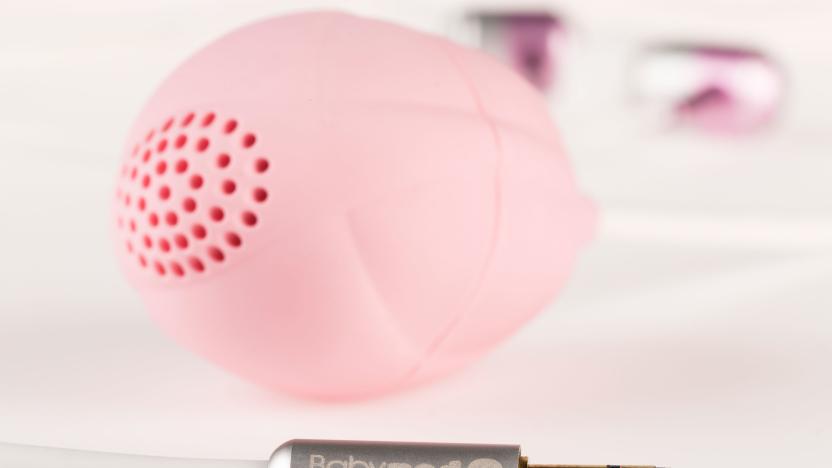fetus
Latest

Give your fetus a concert with vaginal sound system, Babypod
Some people are born to get down; others are gestated. Spanish gynecology clinic Institut Marquès wants to tap into the fetal-music market with Babypod, a speaker that expecting mothers insert into their vaginas a la tampons to play songs for their unborn babies. Babypod connects to a smartphone and plays music directly in the vagina, which is the only way for a fetus to hear unmuffled sounds, the company says. It's also more stylish than giant headphones wrapped around your belly.

Lullabelly prenatal music belt rocks the cradle of love
Hey, you want to start annoying your kids with your crummy taste in tunes before they've even been born? Fine, go for it. The Lullabelly prenatal music belt -- which is like a giant, soft cummerbund with a speaker stuffed into it -- is here to help. Just plug your fave PMP into it and you'll be all set to turn the womb into a super musical fun fest. The speaker has an output of about 60 to 80 decibels, and you can jack in with your earbuds to jam along. Just remember: you're the one with the volume control, and no matter how good the Tran-Siberian Orchestra sounds to you at 11 am, some people would rather listen to Megadeth. This bad boy comes in two slightly different packages, one which will run you $49.99, the other is $59.99[Via Switched]

Two-mic system detects fetal heart rate anomalies, prenatal beat sampling
Patel Institute of Engineering and Technology's A.K. Mittra and associates have devised a clever and inexpensive early warning detection system for monitoring the fetal heart rate of that bun months-long in the oven. With two microphones -- one placed on the pregnant soon-to-be mother's abdomen and one inside the bedroom -- hooked up to a nearby computer, the two audio feeds are used to estimate and subtract the ambient room noise for a better read on the baby's vitals just before the woman goes to bed. Converted to a wav file, if anomalies are detected it's immediately compressed to MP3 and sent to the doctor for further testing. An efficient plan, to be sure, and we can only hope the baby is healthy and hyper-intelligent enough to give normal heartbeats and start recording his or her first LP.
